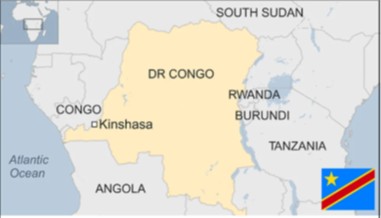


Journal of Contemporary Politics
DOI: 10.53989/jcp.v3i2.9
Year: 2024, Volume: 3, Issue: 2, Pages: 41-44
Original Article
Syamkumar V✉ 1
Received Date:16 April 2024, Accepted Date:05 August 2024, Published Date:06 October 2024
Democratic Republic of Congo (DRC) has had numerous conflicts since gaining independence from Belgium in 1960, which has disproportionately and negatively impacted the nation’s political and socio-economic development. Currently, more than 120 Non-State Armed Groups (NSAG) is present in the DRC, and they are constantly attacking public properties and institutions. It has resulted in an increase in displacement, refugee problems, and recruitment of children to the NSAGs, a decrease in agricultural products, poverty, and human rights violations. The United Nations (UN), since the first civil war in Congo (1996-97), has been trying to decrease the conflicts and support the government in various ways to construct institutional mechanisms to ensure the welfare of the Congolese people. The UN deployed a peacekeeping mission named MONUC in 1999, and in 2010, this mission was renamed MONUSCO. Due to various factors, in December 2023, the UN withdrew MONUSCO from DRC by the end of 2024. This paper examines MONUSCO's contributions to DRC and analyzes its achievements and challenges.
Keywords
Conflict, Democratic Republic of Congo, Non-State Armed Groups, MONUSCO, Challenges
© 2024 Published by Bangalore University. This is an open-access article under the CC BY license (https://creativecommons.org/licenses/by/4.0/)
Subscribe now for latest articles and news.